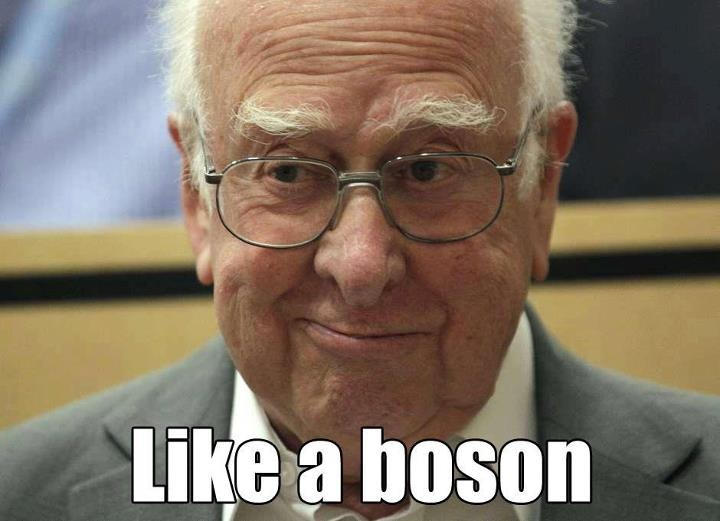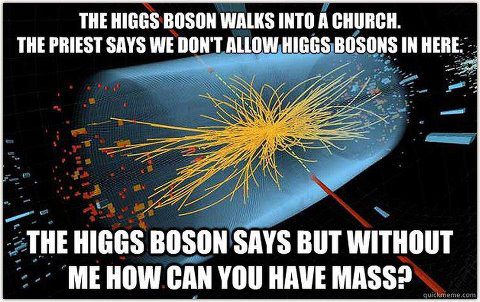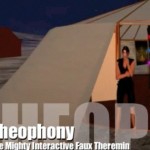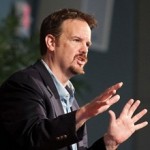
The big news last week was the 99.999999% certainty that scientists have located the so-called “God particle,” a.k.a. the Higgs boson (which is apparently more like a field than a particle but whatever).
People in all sectors of society are now beginning to try and make sense of the implications of this major scientific discovery, including theologians and even missional practitioners!
Tony Jones preemptively started the discussion about how this discovery might change theology, followed shortly after the July 4th announcement by Philip Clayton, who weighed in over at The Huffington Post.
But the post that really caught my attention came from United Methodist Church wonk and missional proponent Taylor Burton-Edwards, who posted on July 5 at the EmergingUMC blog about “The New Boson and Missional Methodism“:
“Let me suggest that what we have witnessed in this historic announcement is the outcome of disciples of physics collaborating worldwide to live out their discipleship and deliver on a common mission. They allowed no barriers of culture, language or time zone to get in their way. Each performed her or his part of the effort with efficiency and excellence, never stopping until the work was done.
“And their outcome — the discovery of this new and apparently Higgs-like boson — is manifest to the world.
“So, what about us?
“As Christians, we are disciples of Jesus charged with making the kingdom of God manifest to the world. As Wesleyan Christians, we further understand our role to be one of announcing and being living witnesses of God’s desire to save us, and save us to the uttermost — to bring us to nothing less than entire holiness, to perfection in love in this life. As United Methodists, we speak of making disciples of Jesus Christ for the transformation of the world.
“Where are there examples of ways we are clearly serious, on a global basis, about making the kingdom of God manifest to the world?
“Where in our local areas are we announcing and being living witnesses of God’s desire and capacity to bring persons to perfection in love in this life?
“Where do we have the clearest focus on what it means to disciple people in the way of Jesus?
“What specific indicators have we identified that can tell us — and help the world to see, with great certainty — that the world is being transformed through Christ and his people called church?
“Where are we engaged in something like the level of committed collaboration we can see in the CERN projects?”
Taylor recognizes that “all of us can come up with negative answers for these questions,” but he’s looking for “the bright spots” that can be connected “into a global network through which the Light of the World may more brightly shine.” I think that sounds like a worthy endeavor … for the Methodists and for the rest of us in the missional conversation, as well.
How would you answer Taylor’s questions? What are “the bright spots” from where you’re looking through your microscope?













